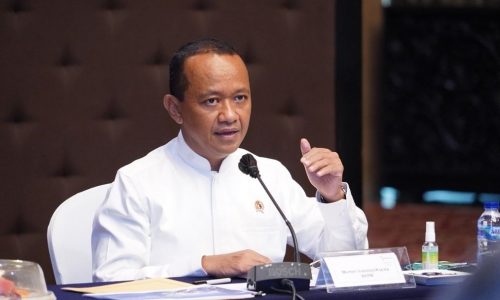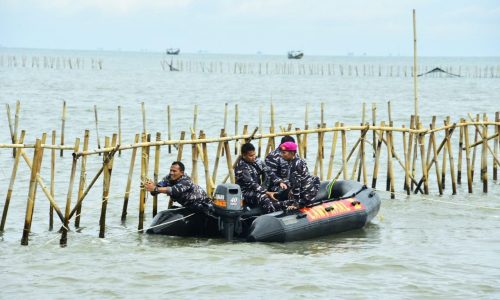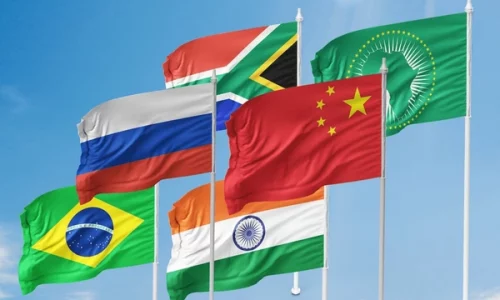Vice-President of the Israel-Indonesia Chamber of Commerce Emanuel Shahaf told Indonesia Business Post that the business and economic relationship between Indonesia and Israel can be complementary, notably in the energy technology, agritech and medical sector.
Shahaf also explained why Indonesia holds a strategic place for Israel, as a moderate largest Muslim country in the world and how the new chairman of Nahdlatul Ulama (NU) – the biggest Muslim organization in Indonesia – and the Abraham Accord reflects a positive outlook on possible bilateral relationships between the two countries.
Israel seeks to invest in Indonesia’s agritech, energy and defense sector
In 2019, Indonesia’s export to Israel amounted to US$181.7 million, mainly commodities, while Israel’s export to Indonesia amounted to US$30.4 million, representing 0.05% of the total export of Israel, consisting mostly of high tech and industrial goods.
The numbers, however, do not include the business relations between two countries which passed under third party flags such as Singapore, Hong Kong and Amman.
According to Shahaf, the agritech industry represents the most significant potential area of cooperation between Indonesia and Israel since Indonesia is still very much an agricultural country.
“A substantial proportion of Indonesia’s working population is involved in farming. By adopting Israel’s technology, Indonesia will be able to increase the income of its rural population, while at the same time reducing workers in agricultural sectors,” he said.
“In Indonesia, there is still a perception that agriculture is not a viable source of income and the business people do not view agriculture as a legitimate business. This is because it takes a long time for them to achieve a return on investment, and there are risks involved, such as dealing with the workers, the weather and the environment,” he explained.
“In Israel, agriculture is viewed as an industrial process that is highly mechanized, automated and involves only a few workers. So there is a certain mismatch, Indonesia needs the technology, but Indonesia needs to invest. Indonesia has enough money, and we will provide the technology,” he added.
Israel has more than 400 Israeli agritech start-ups in the sector including intelligent farming, crop protection fertilizers, irrigation and water management, post-harvest technology, biotech, aquaculture, etc. In addition to that, over 100 Israeli companies are involved in energy technology, most are ready to invest in Indonesia.
Untapped market for defense products
Shahaf said that Indonesia was also a significant market for Israeli defense products.
“There are Israeli cyber companies doing business in Indonesia, as far as I know only defensive and not the offensive ones. I am not sure If export control in Israel permits selling offensive cyber products in Indonesia,” he said. “We sold past defense products to Indonesia in 1980; I believe we are also providing defense products to Indonesia now, not so much, but we are.”
Indonesia’s strategic position as moderate Muslim country
Lack of diplomatic relations between Indonesia and Israel is deemed as an obstacle in economic cooperation.
“If there’s no normalization, there won’t be much improvement. The main obstacle is the absence of diplomatic relations between the two countries. As long as Israel does not deal with the Israeli-Palestinian conflict, Indonesia will have a hard time opening up to Israel. So little will move unless the US puts a lot of pressure on Indonesia,” Shahaf said.
He considers Indonesia as strategically crucial for Israel since it is the world’s most prominent moderate Muslim country.
“I think the biggest attraction for Israel is the fact that Indonesia is a very large Muslim, a moderate Muslim country and can contribute to a peaceful relationship with the Palestinians and other Muslim countries,” he added.
Regarding the Abraham accord with the UAE, Shahaf thinks it would contribute a big deal to Israel-Indonesia’s relations. The countries that have signed the Abraham Accord with Israel may persuade Indonesia to overcome apprehensions regarding working with Israel. In addition to that, the agreement will facilitate exchanges, the flow of capital, and cooperation between Israel and Arab countries, hence helping Israeli channel investment in Indonesia.
Focusing on building the people-to-people relation
When asked about Yahya Cholil Staquf, NU Executive Council on Indonesia-Israel relation, Shahaf said they already met when Staquf visited Israel several years ago.
“He is a very nice person, and I think he continues the long history of NU people who are positively inclined to a relationship with Israel. We all remember Gus Dur [former president and former NU chairman Abdurrahman Wahid] and in general NU is in favor of developing relation between Indonesia and Israel, hence we’re looking forward that it will continue,” he said.
For Shahaf, the most important thing now is to build relationships at the people-to-people level, not so much at the political level, and that is where the NU can be helpful.









